How Much Does It Cost to Mine a Bitcoin? $20K With 4.7c/Kwh
Mining a Bitcoin depends on your energy rate per Kwh, it costs $40K to mine a Bitcoin at 10 cents per Kwh and $20K to mine a Bitcoin at 4.7 cents per Kwh. Learn how and if its right for you!

As Bitcoin’s price goes up, so do the miners' prices. Depending on what your energy costs are per kilowatt hour as well as market conditions, it may be more beneficial to mine; other times, it may be better to simply purchase Bitcoin outright.
In this article we break down the essential costs and considerations involved in mining Bitcoin. Feel free to jump to any section below!
Bitcoin mining is the process by which computers secure the network, process transactions, and unlock the newly issued Bitcoin. Specialized computers expend energy in a race to solve a cryptographic puzzle.
Whoever wins the race wins the ability to add the next block of data into Bitcoin’s chain of transaction history.
That miner also earns the newly issued Bitcoin and the transaction fees for that particular block.
When deciding whether to mine or not, a few factors must be considered. Mining allows you to essentially purchase Bitcoin at the cost of energy rather than market prices.
It can be extremely lucrative to enter the market before large, upward price movements. However, if energy costs are too high, it may not be profitable to mine rather than buy Bitcoin.
For example, at 4.7c per kilowatt hour it costs $20K to mine a Bitcoin.
Contrary to popular belief, Bitcoin mining gives value to wasted energy in many unobvious ways.
Another factor is hash rate growth. As more miners join the network to provide computing power, your existing computing power is diluted gradually. Generally speaking, mining rigs will produce Bitcoin at a decreasing rate, becoming less profitable over time.
Bitcoin is a network, asset, and protocol that allows for the transfer of value across the internet in a peer-to-peer way without the need for an intermediary. Imagine sending your friends cash through an email.
This is done in a verifiable way that cannot be counterfeited or double-spent, so you always know the Bitcoin you hold is real and legitimate.
Bitcoin mining started as a way for fair issuance. All people needed to do was run free, open-source software on their computers to earn Bitcoin as a reward. Miners also process transactions.
Swan’s Yan Pritzker breaks down Bitcoin mining as a lottery system in this great Twitter thread:
Miners earn the newly minted Bitcoin and transaction fees by using electricity to solve a cryptographic puzzle called 'Proof of Work.'
As network power grew, specialized computers were developed to make mining more efficient. They now serve as a digital security fence that keeps the network honest and secure.
In exchange, miners receive newly issued Bitcoin and transaction fees. This is called the block reward. The block reward is currently 6.25 Bitcoin but will be cut in half in April 2024 to 3.125 Bitcoin.
This is known as the 'Bitcoin Halving' and is one of the mechanisms widely believed to precipitate Bitcoin bull markets and large price predictions from institutional investors.
The block reward halving happens roughly every 4 years or 210,000 blocks. It is the mechanism by which Bitcoin’s 21,000,000 (or 2.1 quadtrillion satoshis) hard cap is reached and is widely believed to precipitate bull markets.
New Bitcoin is created, on average, every 10 minutes as a block is created. As computers worldwide race to solve a cryptographic puzzle, they are simultaneously arranging transactions into a block of data.
This block is added to the history of all Bitcoin transactions. As a reward, the miner who solves the problem first receives the 6.25 Bitcoin and transaction fees associated with that block.
Theoretically, a miner could go forever without ever winning the race. To reduce this risk, miners will pool their computing power together to solve the problem collectively.
Mining pools are groups of miners that work together to solve the cryptographic puzzle. The more computing power they have, the higher the probability they will solve the next block.
In doing so, they earn the reward and fees, splitting the payout proportionally based on how much computing power each entity provides for the pool.
In this setup, miners opt out of the chance of winning the entire reward for themselves but, in exchange, receive more predictable income from their proof of work computations.
It depends on your power cost and what type of machine you use. If you plug in the latest mining computers into your home, it will be quite expensive to mine.
A Bitcoin could cost nearly $40,000 to mine at ten cents a kilowatt hour.
However, hosted mining options with much cheaper power allow you to mine Bitcoin at around $20,000.
Example: Sazmining boasts 4.7¢ electricity and estimates that their cost of Bitcoin is $19,900.
As more computing power, or hash rate, joins the Bitcoin network, the mining algorithm difficulty will automatically rise to maintain the 10-minute target average block time.
As the difficulty rises, the marginal contribution of every computer on the network goes down, making them less profitable.
Mining hash rate and difficulty have risen consistently, meaning miners slowly become less profitable over time. There are still trade-offs, however.
Newer, more efficient machines will cost substantially more than older machines. Depending on the circumstances, older machines may actually have a better return on investment and a shorter payback period.
Mining Bitcoin allows you to accumulate Bitcoin at the cost of energy rather than the cost of Bitcoin. It also supports network security.
Many call it the native way to dollar cost average. There are two primary risks, however:
If Bitcoin’s price drops too low, your miner may not produce enough Bitcoin to offset electricity costs
The hash rate could also grow faster than expected, diluting your miner’s individual hash power and reducing return on investment
Some may choose to mine at home, however, if they want to accumulate KYC-free Bitcoin, even if the cost of electricity exceeds the value of Bitcoin produced.
At Pacific Bitcoin 2023, Kaz Bycko hosted a panel with Zack Bomsta and Michael Schmid all about the world of home mining, how it can be fun, profitable and how it’s actually important for the radical decentralization of Bitcoin.
Check out there panel discussion below!
Everyone’s situation is different, but these are a few factors you should consider before diving in.
Navigating the costs of Bitcoin mining can be quite the expedition. But don’t let the complexities of mining overshadow the simpler pathways to Bitcoin ownership.
If mining seems too daunting or costly, there’s a straightforward alternative for you. Don’t worry; on January 25th, Swan announced Swan Mining, a division of Swan Institutional.
Swan Bitcoin is the fastest and easiest way to buy Bitcoin. Whether you’re new to Bitcoin or a seasoned enthusiast looking to expand your portfolio with a Bitcoin IRA.
Start your Bitcoin journey. Join Swan Bitcoin now.
Swan IRA — Real Bitcoin, No Taxes*
Hold your IRA with the most trusted name in Bitcoin.
Mickey Koss became a freelance writer in the Bitcoin space in an attempt to build a proof of work portfolio for when he left the Army. He graduated from West Point with a degree in Economics before serving in the Army for nearly a decade. He became orange pilled in graduate school and is now a regular contributor to Forbes, Bitcoin Magazine, and Bitcoin News. He’s been on popular podcasts such as BTC Sessions’ Why Are We Bullish, and is a regular on Café Bitcoin.
More from Swan Signal Blog
Thoughts on Bitcoin from the Swan team and friends.
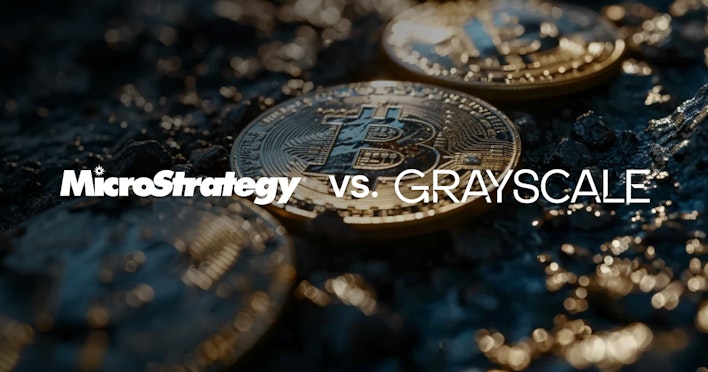
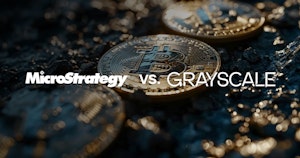
MSTR vs. GBTC Compared: Which is Best in 2024?

By Drew
This article compares MSTR and GBTC, offering insights for investors by examining their features, benefits, performance, fees, and drawbacks, focusing on their role in Bitcoin investment strategies.
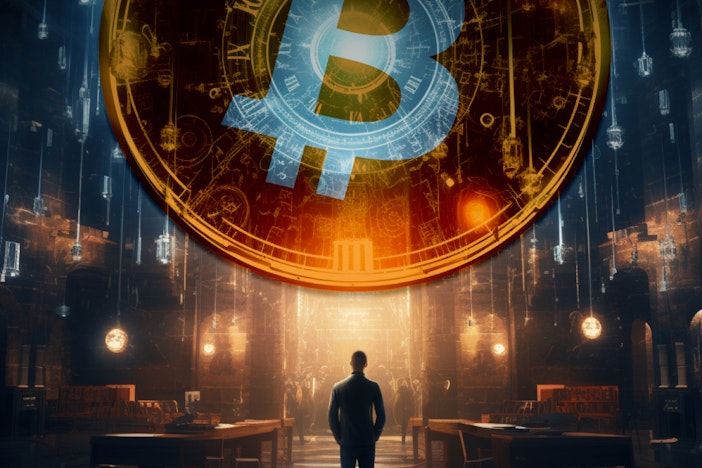
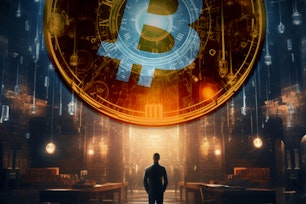
Changing Bitcoin: The Past, The Present, and The Future (Part One)

By Tomer Strolight
For Bitcoin to achieve the lofty goals many have for it, its rules will need to change. This three-part series of articles will tackle what it takes to change Bitcoin.
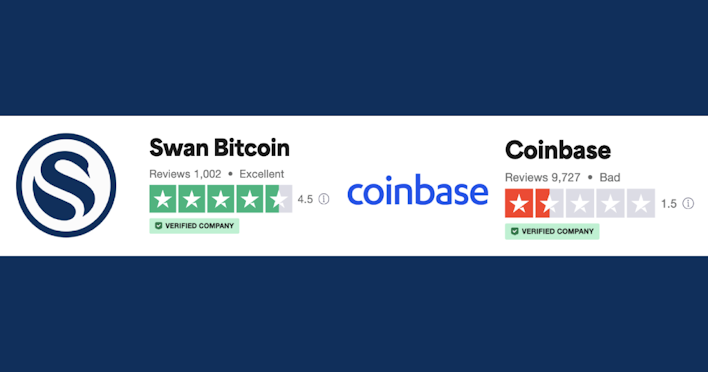
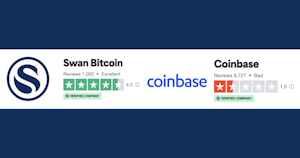
4 Reasons to Avoid Coinbase In 2024?

By Matt Ruby
The crypto platform is facing all kinds of problems. Is it time for customers to seek out an alternative?
